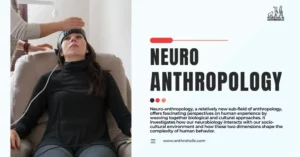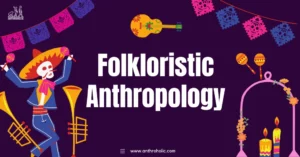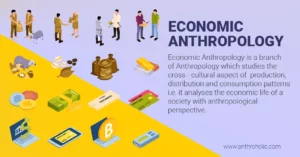AI Answer Evaluation Platform Live Now. Try Free Answer Evaluation Now
Ethnology
Ethnology is a branch of cultural anthropology that focuses on the comparative study of human cultures. While ethnography describes a single culture in depth, ethnology looks across multiple societies to identify similarities, differences, and larger patterns in human life. It seeks to answer fundamental questions: Why do people organize families differently? Why do rituals and myths vary yet often reflect common human concerns? How do social, political, and economic systems adapt to different environments?

Rooted in early explorations of the 18th and 19th centuries, ethnology evolved from biased colonial comparisons into a scientific and human-centered discipline. Modern ethnologists emphasize cultural relativism, understanding each culture on its own terms rather than ranking them. By comparing diverse communities, ethnology highlights both the uniqueness of cultural traditions and the shared threads that connect all of humanity.
What Exactly Is Ethnology?
Ethnology is a branch of anthropology that studies cultures in comparison. It goes beyond describing one society and instead asks: How do different cultures resemble one another, and how do they differ? By analyzing multiple communities together, ethnology looks for both unique traditions and the underlying patterns that connect human life everywhere.
At its core, ethnology is about making sense of cultural diversity. An ethnographer might live with a single community and record their customs in detail, but an ethnologist takes many such accounts and compares them. This wider perspective allows ethnology to answer big questions about kinship, religion, politics, economy, myths, rituals, and values.
How Is Ethnology Different from Ethnography?
Because the words sound so similar, people often confuse ethnology and ethnography but they are not the same thing. Both belong to anthropology, but they serve different purposes.
- Ethnography is about deep description. An ethnographer spends time living in a community, observing everyday life, talking to people, and writing a detailed account of how that society works. It’s like zooming in with a camera to capture the fine details of one culture.
- Ethnology is about comparison and interpretation. An ethnologist gathers these ethnographic accounts from many different societies and looks at them side by side. The goal is to identify broader cultural patterns, differences, and similarities. Ethnology is like zooming out with a wide lens to see the bigger picture of humanity.
Example:
Imagine an ethnographer studying kinship among a village community in India. They document family ties, marriage rules, and inheritance customs. An ethnologist then compares this study with similar research on Native American kinship or African lineage systems to understand the general principles of how humans everywhere organize families.
In simple terms:
- Ethnography = description of one culture
- Ethnology = comparison of many cultures
Together, they complement each other without ethnography, ethnology has no data, and without ethnology, ethnography has no broader meaning.
History of Ethnology
The story of ethnology begins in the age of exploration, when European travelers, missionaries, and colonial administrators first started recording the customs, languages, and traditions of the people they encountered. These early accounts were descriptive but often biased many viewed non-European societies as “primitive” and ranked cultures on a ladder from “savage” to “civilized.” This was less science and more judgment.
By the late 19th century, ethnology started to take shape as a more systematic discipline. Scholars began comparing cultures not just to rank them, but to classify patterns such as forms of kinship, marriage, economy, or political organization. Thinkers like E.B. Tylor and Lewis Henry Morgan laid some of the earliest foundations, though their work still reflected evolutionary hierarchies of culture.
The real transformation came in the early 20th century. Anthropologists such as Franz Boas in the United States challenged the idea of ranking societies and instead promoted cultural relativism the principle that each culture should be understood on its own terms. At the same time, Bronislaw Malinowski emphasized fieldwork and functional analysis, while Claude Lévi-Strauss in France used structuralism to uncover universal patterns in myths and social organization.
From that point onward, ethnology shifted from being a tool of colonial comparison to a scientific and human-centered study of cultural diversity.
In the present day, ethnology is no longer about collecting “exotic” facts but about understanding the complexities of a globalized world migration, identity, indigenous knowledge, cultural exchange, and conflict resolution. Its history shows how a discipline once rooted in colonial perspectives evolved into a field committed to respect, diversity, and shared humanity.
Importance of Ethnology Today
At first glance, ethnology might sound like something tucked away in university research papers. But its importance reaches far beyond classrooms. In our globalized and interconnected world, ethnology helps us make sense of diversity and navigate cultural encounters that happen every day.
Here’s why ethnology matters today:
- Cross-Cultural Understanding: By comparing how different societies think, live, and solve problems, ethnology reduces stereotypes and encourages empathy. It reminds us there is no single “normal” way to live.
- Preserving Indigenous Knowledge: Many communities hold centuries of wisdom about the environment, health, and social organization. Ethnology helps document and share this knowledge at a time when globalization often threatens its survival.
- Guiding Global Dialogue: From migration and multiculturalism to conflict resolution, ethnology offers insights into how diverse societies can coexist and cooperate.
- Revealing Human Adaptability: By studying how societies respond to challenges whether environmental, economic, or political ethnology shows us the endless creativity of human cultures.
Ethnology in Action
Ethnology becomes most powerful when we see it in action when comparisons across cultures reveal both human diversity and shared concerns. Let’s look at two examples: one classic, one very modern.
1. Kinship Studies
One of the oldest and most influential areas of ethnology is kinship the study of how societies define family, marriage, and inheritance.
- In South Asia, kinship is a vast network. Marriage is often arranged within caste or community lines, and extended families play a major role in decision-making.
- In many Western countries, the nuclear family parents and children tends to dominate, while extended kinship is less central.
- Among Australian Aboriginal groups, kinship is deeply structured, tied to clans, totems, and strict rules about who can marry whom.
When ethnologists compare these systems, they see striking variation. Yet the underlying principle is universal: every society builds a framework of belonging, obligation, and continuity. Kinship reminds us that family may look different, but it always matters.
2. Food and Globalization
A more contemporary example of ethnology can be found in food practices. Food is not just about nutrition it carries meaning, identity, and memory.
- In Japan, sharing sushi or tea ceremonies reflects traditions of respect, purity, and seasonality.
- In India, food is tied closely to religion and caste, with rules about purity, vegetarianism, and ritual fasting.
- In the West, globalization has created hybrid cuisines think tacos with sushi fillings or pasta with Indian spices reflecting cultural blending.
By comparing these practices, ethnologists see how globalization reshapes identities. Food becomes a symbol of both cultural preservation and cultural exchange. It shows how traditions adapt without disappearing, and how cultures influence one another in creative ways.fe?
Case Study: The Coffee Connection
Coffee is one of the world’s most consumed beverages, but beyond caffeine, it carries deep cultural meanings. Ethnology allows us to see how one simple drink transforms into very different rituals, values, and identities across societies.
- Ethiopia – Coffee as Community Ritual :Ethiopia, often called the birthplace of coffee, treats coffee not as a quick drink but as a ceremony. The bunna maflat (coffee ceremony) involves roasting the beans, grinding them, and preparing the brew in a clay pot called jebena. The process can take hours and is accompanied by incense, conversation, and food. Serving coffee three times to guests symbolizes friendship, respect, and community bonding. Here, coffee is about togetherness and tradition.
- Turkey – Coffee as Heritage and Fortune: Turkish coffee, thick and unfiltered, is an integral part of social and cultural life. In 2013, UNESCO recognized Turkish coffee culture as an Intangible Cultural Heritage of Humanity. Beyond its preparation, coffee in Turkey often carries a mystical dimension: fortune tellers “read” the coffee grounds left in the cup, interpreting patterns as glimpses into one’s future. Coffee here is not only about hospitality but also storytelling and destiny.
- Europe & the West – Coffee as Productivity and Lifestyle: In much of Europe and North America, coffee is tied to speed, convenience, and work culture. The rise of café chains reflects an urban lifestyle where coffee is consumed on the go, fueling productivity. At the same time, specialty coffee shops are emerging as “third spaces” neither home nor work where people gather to socialize, study, or work remotely. Here, coffee reflects modernity, individualism, and changing rhythms of life.
Ethnological Insight:
By comparing these cultural practices, ethnologists show us that coffee is never just coffee. In Ethiopia, it is a ritual of community; in Turkey, a heritage of tradition and fortune; in the West, a symbol of modern speed and lifestyle. The same drink tells three very different stories, shaped by cultural context.
Ethnology vs Sociology vs Anthropology
These three fields often overlap, which is why people sometimes confuse them. But each has its own scope, methods, and way of looking at human life.
Anthropology
Anthropology is the big umbrella. It is the study of humans our biology, culture, language, and evolution—past and present. Anthropology answers questions like:
- How did humans evolve physically and culturally?
- How do different communities live and adapt?
- What is universal in human behavior, and what is culturally specific?
It has four main branches: cultural anthropology, biological anthropology, linguistic anthropology, and archaeology.
Ethnology
Ethnology sits within cultural anthropology. While ethnography describes one community in detail, ethnology goes further it compares cultures.
- Ethnology looks for patterns across societies: kinship systems, rituals, myths, or economic practices.
- It often asks: “What similarities and differences exist between cultures, and why?”
- Example: Comparing marriage rules in India, Africa, and Europe to see both diversity and common themes.
Sociology
Sociology focuses mainly on modern, industrial societies. It studies social institutions (family, education, politics, economy) and issues like inequality, urbanization, and social change.
- Where anthropology might study a tribal society or ritual, sociology is more likely to study city life, social class, or bureaucracy.
- Example: A sociologist might examine unemployment trends in a city; an ethnologist might compare how different societies handle work and status.
Conclusion
Ethnology is much more than an academic exercise it is a lens through which we can understand the diverse ways humans organize life, think, and find meaning. From kinship systems to rituals, from food practices to festivals, ethnology reveals both the uniqueness of cultures and the universal threads that connect humanity.
Over its history, ethnology has evolved from a colonial, judgmental perspective to a respectful, human-centered discipline grounded in cultural relativism. Today, it not only enriches our understanding of the past and present but also equips us to navigate a rapidly globalizing world. By comparing cultures, ethnologists help us appreciate diversity, preserve indigenous knowledge, and foster cross-cultural empathy.
In essence, ethnology teaches us that no culture is “better” or “worse” each is a distinct solution to the challenges of human life. In studying these differences, we also gain insight into ourselves, realizing that while lifestyles and customs may vary, the core human needs belonging, survival, creativity, and meaning are shared across all societies.
Ethnology invites us to see the world with curiosity and respect, reminding us that understanding others is the first step toward understanding ourselves.




